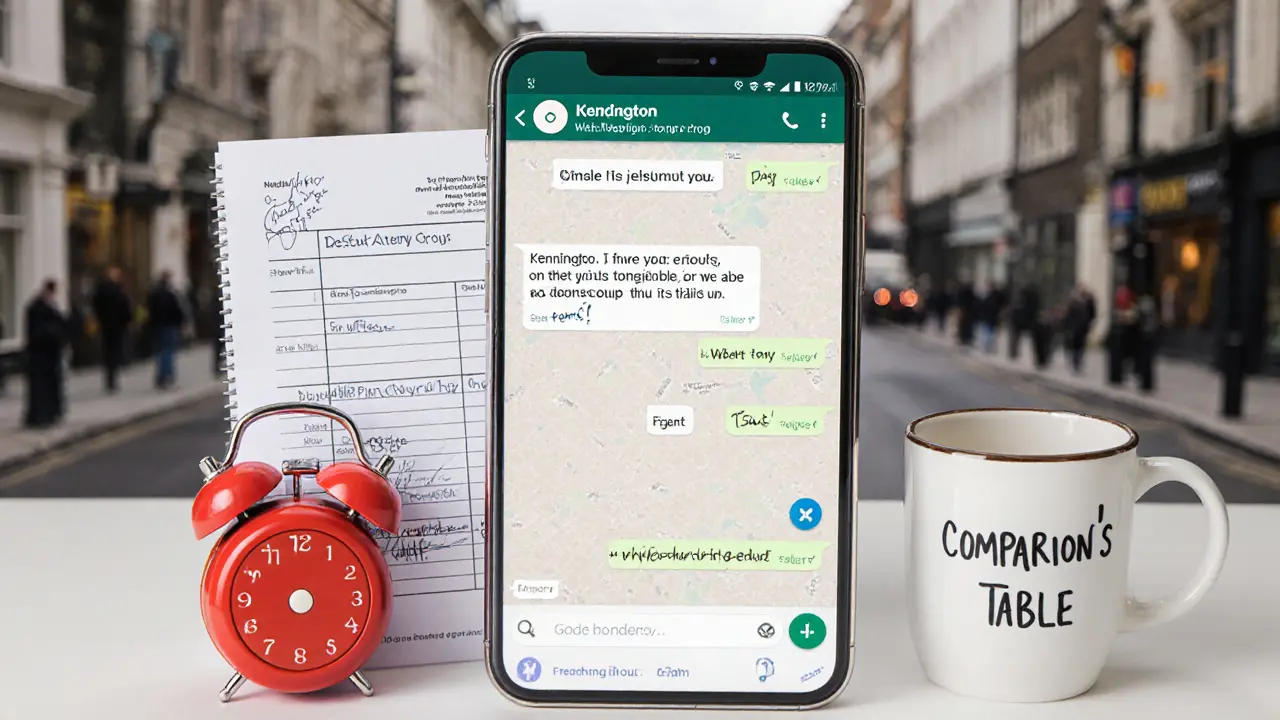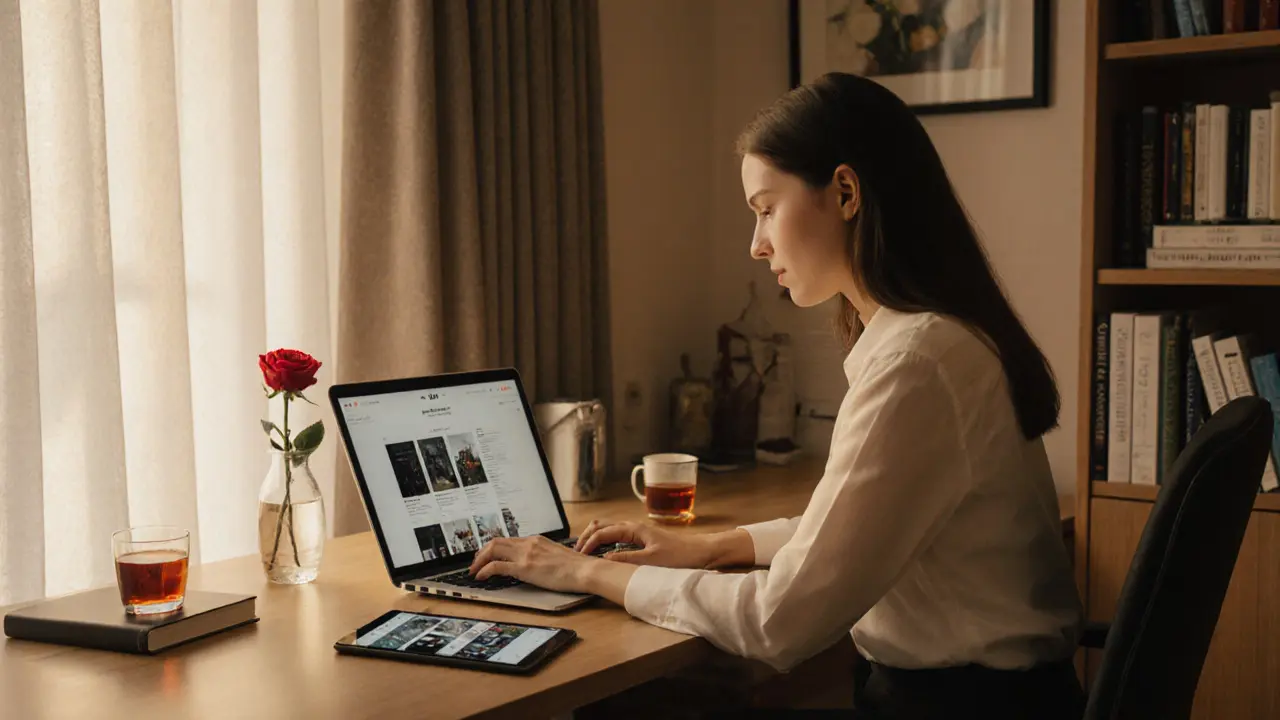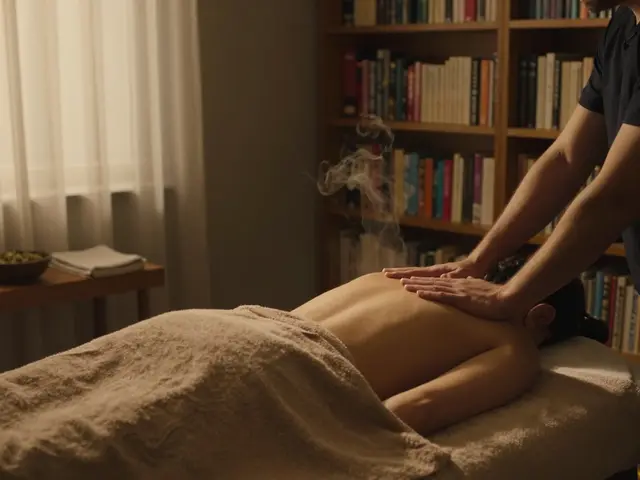Five years ago, if you wanted to hire an escort in West London, you’d likely find yourself scrolling through sketchy websites with blurry photos and vague descriptions. Today, the scene is completely different. More women-and a growing number of non-binary and male companions-are running their own businesses, using Instagram, LinkedIn, and private booking platforms to connect directly with clients. They’re not just offering companionship; they’re building brands, setting boundaries, and controlling their own terms. This isn’t a hidden underground economy anymore. It’s a quiet, growing professional movement.
Why Independent? The Shift Away from Agencies
Agencies used to dominate the escort scene in West London. They took 40-60% of earnings, dictated schedules, and often required strict dress codes or mandatory health checks. Many workers felt like employees, not entrepreneurs. Now, independent escorts are walking away. Why? Because they can.
Platforms like OnlyFans, Patreon, and private booking sites like CompanionList and The Escort Directory have made it easier than ever to manage your own client base. No middleman. No hidden fees. No one telling you what to wear or when to be available. A 2024 survey of 127 independent escorts in Greater London found that 78% switched from agencies because they wanted control over their income and working conditions.
Take Maya, a 32-year-old former marketing executive who now works as an independent escort in Notting Hill. She doesn’t advertise on public forums. Instead, she uses a password-protected website, a curated Instagram feed, and word-of-mouth referrals. Her rates? £250-£500 per hour, depending on the service. She books only three clients a week. Her net income? Around £5,000 a month. No agency cuts. No overtime. No pressure to say yes to anyone.
What Clients Are Really Looking For
It’s not just about sex. That’s a myth that’s been pushed for decades. Most clients who hire independent escorts in West London are looking for emotional connection, conversation, or simply a break from loneliness. A 2023 study by the London School of Economics found that 62% of clients in private companionship services cited ‘feeling heard’ as their primary reason for booking.
It’s not a fantasy service. It’s a human one. Clients include divorced men in Kensington, single women in Chelsea who want to go to dinner without being stared at, and even tech entrepreneurs from Hammersmith who just need someone to talk to after a long week. The most successful independent escorts don’t just show up-they listen. They remember names. They know when to be quiet and when to laugh.
One client, a 48-year-old architect from Fulham, said: “I’ve been with the same woman for two years. We talk about books, my kids, my stress at work. I don’t need sex every time. Sometimes I just need to feel like I’m not invisible.”

How They Stay Safe and Legal
Being independent doesn’t mean being reckless. The safest escorts in West London treat their work like a small business-with policies, boundaries, and risk management.
- They never meet at their own homes. Always public first meetings or pre-booked hotel rooms.
- They screen clients through video calls before in-person meetings.
- They use encrypted apps like Signal or Telegram to communicate.
- Many carry personal alarms or use safety apps like Circle of 6 that alert a friend if they don’t check in.
- They keep records of every booking-date, time, location, client name-just like any professional service provider.
Legally, prostitution itself isn’t illegal in the UK-but soliciting in public, running a brothel, or pimping are. Independent escorts avoid all of these. They don’t advertise in public spaces. They don’t share premises with others. They work alone. That’s the line they walk to stay on the right side of the law.
The New Professional Standards
These aren’t people hiding in the shadows. Many have degrees, full-time side gigs, or past careers in law, nursing, or education. Some are mothers. Others are students. They don’t see themselves as “escorts.” They see themselves as companions, consultants, or personal hosts.
There’s even a growing network of peer support groups in West London. A private WhatsApp group called “West London Companions” has over 300 members. They share tips on client screening, legal advice, mental health resources, and even recommend trusted therapists who understand their work.
Some have started offering workshops. “How to Set Boundaries,” “Managing Client Expectations,” and “Financial Planning for Independent Workers” are now common topics. One escort, Priya, runs monthly Zoom sessions on tax filing for self-employed companions. She’s helped over 50 women file their first self-assessment.

Why This Is Changing the Industry Forever
The old model-agencies, fixed rates, no autonomy-is fading. The new model is personal, flexible, and client-focused. And it’s working.
Independent escorts in West London are redefining what companionship means. They’re not selling sex. They’re selling presence. They’re selling trust. They’re selling the quiet luxury of being fully seen.
And clients? They’re noticing. Demand has grown 47% since 2021, according to data from the UK Independent Companions Association. The average age of clients has risen too-from 34 in 2019 to 41 in 2025. More people are seeking meaningful connection, not just physical release.
This isn’t a trend. It’s a structural shift. The people who are thriving now are the ones who treat their work like a profession-not a secret, not a sin, but a service.
What’s Next?
More escorts are starting to speak publicly. A few have even launched podcasts. One, called “The Companion’s Table,” features interviews with independent workers across the UK. They talk about burnout, finances, relationships, and how they handle stigma.
There’s also talk of forming a formal association for independent companions in London-a group that could advocate for better legal protections, access to healthcare, and recognition as legitimate service providers.
For now, the movement is quiet. But it’s growing. And it’s not going back.
Are independent escorts in West London legal?
Yes, as long as they work alone, don’t solicit in public, and don’t run a brothel. In the UK, selling sex isn’t illegal-but activities like pimping, brothel-keeping, or advertising in public spaces are. Independent escorts avoid these by using private websites, encrypted communication, and pre-booked locations.
How do independent escorts find clients?
Most use private booking platforms like CompanionList or The Escort Directory. Others rely on Instagram profiles with discreet content, word-of-mouth referrals, or password-protected websites. They rarely use public ads or street-based solicitation. Client screening is standard-many require video calls before meeting in person.
How much do independent escorts in West London earn?
Earnings vary widely based on experience, location, and services offered. Most charge between £200 and £600 per hour. Top-tier independent escorts who work 3-4 days a week can earn between £4,000 and £8,000 monthly after expenses. Many also offer additional services like virtual companionship or writing personalized letters, which add to their income.
Is this just a side hustle, or do people do this full-time?
Both. Some use it to supplement income while studying or working another job. Others have left corporate careers to work full-time as independent companions. The flexibility allows people to choose their hours, which appeals to parents, freelancers, and those seeking work-life balance. Many say they earn more and feel more respected than they did in their previous jobs.
What’s the biggest misconception about independent escorts?
That it’s only about sex. In reality, most clients seek emotional connection, conversation, or companionship. Many escorts say their most rewarding sessions are the ones where they talk about books, family, or life stress-not physical intimacy. The work is about presence, not performance.








